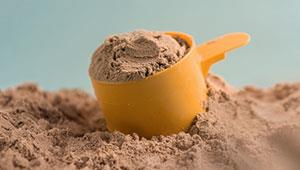Get a Coach
A coach can save you from bad planning and help you create a training program that'll give you the best chance for success. It's their job to teach you race strategy, pacing, and execution of your race plan.
A good coach will be honest with their feedback and give you the confidence needed to perform at an Ironman event.
Fuel
During an Ironman, you'll need to multi-task. Think of the bike leg as the best opportunity you'll have to fuel up for the run. If possible, try to consume the majority of your fluids and calories on the bike. By concentrating on your consumption of carbohydrates and fluid, you'll also be forced to pace yourself.
Never underestimate the importance of building your energy stores during the bike. If you don't, it could spell trouble for your run.
More: The 4 Rules of Ironman Training
Strength Training and Running Technique
Get on a strength-training program that's made for triathletes. It'll make you a stronger and more efficient runner, which will pay dividends on race day.
A good strength-training program should have compound lifts like squats, deadlifts, and power/kettlebell cleans. The program should include exercises that target the core, like renegade rows, planks, power wheel and TRX suspension abdominal exercises. The stronger you are, the less likely you'll break down during the final stages of the race.
Be sure to spend some time perfecting your running technique. Have someone video your running form and determine what needs to be corrected. You'd be amazed at the amount of energy that can be saved with proper running form.
An Ironman is a monumental task. Be patient and let the race come to you. Proper training, sticking to your race pace and good nutrition habits don't guarantee success in the Ironman marathon, but it greatly improves your chances to finish.
More: Should You Run a Marathon to Prepare for an Ironman?
 Search for your next triathlon.
Search for your next triathlon.
- 2
- of
- 2
About the Author









Discuss This Article